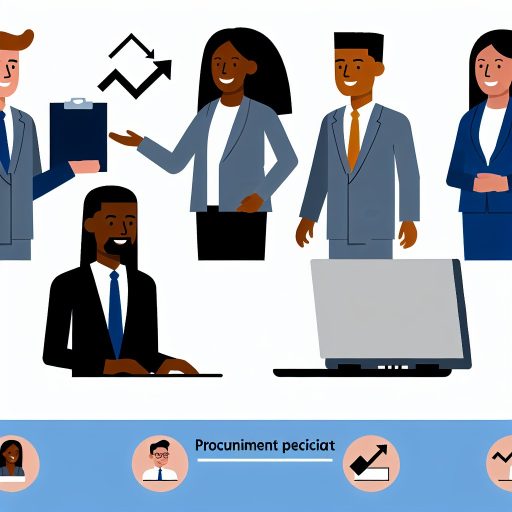Introduction
Transportation planners play a crucial role in designing transportation systems.
They implement these systems to ensure efficiency and sustainability.
Education is essential in this field.
It provides the necessary knowledge and skills to tackle complex transportation challenges.
This blog post aims to guide aspiring transportation planners on the educational path.
The post shows what they should take to succeed in this profession.
Educational Requirements
- Bachelor’s degree in urban planning, civil engineering, geography, or related field.
- Master’s degree in transportation planning or a related discipline may be required for advancement.
Aspiring transportation planners need to fulfill specific educational requirements to enter and advance in this field.
Here are the key educational paths and degrees that aspiring transportation planners should consider pursuing.
Bachelor’s Degree in Urban Planning, Civil Engineering, Geography, or Related Field
To start a career in transportation planning, a bachelor’s degree is usually the minimum requirement.
A degree in urban planning, civil engineering, geography, or a related field provides a solid foundation for understanding the principles of transportation planning.
Students who major in urban planning learn how to manage land use, transportation systems, and urban development to create sustainable and efficient cities.
Civil engineering programs cover topics such as transportation infrastructure design, traffic management, and sustainable transportation solutions.
Geography programs focus on spatial analysis, GIS mapping, and understanding the relationship between transportation and the environment.
During their undergraduate studies, students can take courses that focus on transportation planning principles, traffic engineering, transportation policy, and urban design.
These courses help build a strong knowledge base in this field.
Master’s Degree in Transportation Planning or a Related Discipline
While a bachelor’s degree may qualify individuals for entry-level positions in transportation planning, a master’s degree can provide a competitive edge.
A master’s degree opens up more advanced career opportunities in the field.
A master’s degree in transportation planning or a related discipline offers a more specialized and in-depth understanding of transportation systems, urban mobility, and sustainable transportation practices.
Students in these programs typically engage in coursework that covers transportation modeling, public transit planning, transportation policy analysis, and transportation economics.
Furthermore, a master’s degree program often includes hands-on projects, internships, and research opportunities.
Transform Your Career Today
Unlock a personalized career strategy that drives real results. Get tailored advice and a roadmap designed just for you.
Start NowThese experiences allow students to apply theoretical knowledge to real-world transportation challenges.
These practical experiences help aspiring transportation planners develop skills and expertise needed to excel in the field.
Graduate programs in transportation planning also provide students with the opportunity to collaborate with industry professionals, government agencies, and community stakeholders.
They address complex transportation issues and develop innovative solutions together.
Continuing Education and Professional Development
Transportation planning is a dynamic and evolving field.
Professionals are encouraged to pursue continuing education and opportunities for professional development throughout their careers.
Industry-specific certifications, workshops, conferences, and seminars help transportation planners stay current on trends and technologies.
They also learn best practices in the field through these activities.
These events provide networking opportunities.
They allow practitioners to exchange ideas, collaborate on projects, and learn from industry experts.
Professional organizations such as the American Planning Association (APA), the Institute of Transportation Engineers (ITE), and the Association of Metropolitan Planning Organizations (AMPO) offer valuable resources.
They provide training programs and events that support ongoing professional development for transportation planners.
By staying engaged with industry developments and honing their skills, transportation planners can enhance their expertise.
They can advance their careers and make meaningful contributions to transportation system planning and design.
These systems benefit communities and improve quality of life.
Pursuing a combination of a relevant bachelor’s degree, a master’s degree in transportation planning or related discipline, and ongoing professional development builds a strong foundation for success.
Internship Opportunities
Internship opportunities play a crucial role in the educational path of aspiring transportation planners.
They provide practical experience in the field.
Importance of Gaining Practical Experience in the Field
Internships offer invaluable hands-on experience that cannot be gained in a classroom setting alone.
They allow students to apply theoretical knowledge to real-world scenarios.
Transform Your Career Today
Unlock a personalized career strategy that drives real results. Get tailored advice and a roadmap designed just for you.
Start NowThis enhances their understanding of transportation planning concepts and methods.
By working alongside professionals in the field, interns have the opportunity to learn from experienced mentors.
They gain insights into the daily tasks and challenges faced by transportation planners.
This practical experience builds technical skills and fosters critical thinking.
It also develops problem-solving abilities essential for success in the field.
Seeking Internships with Transportation Planning Firms or Government Agencies
Aspiring transportation planners should actively seek internships with transportation planning firms or government agencies.
This helps them gain firsthand experience in the industry.
Interning at a transportation planning firm provides exposure to a variety of projects.
These range from traffic analysis and transportation modeling to infrastructure planning and public transit development.
Working in a fast-paced and dynamic environment, interns learn about different stages of the planning process.
They contribute to real projects under the guidance of experienced professionals.
On the other hand, internships with government agencies offer insight into policy and regulatory aspects of transportation planning.
Interns can participate in public meetings.
They conduct research on transportation issues and assist in developing transportation plans and policies.
These plans and policies impact the community at large.
Networking Opportunities During Internships
Internships also present valuable networking opportunities for aspiring transportation planners.
They allow interns to connect with industry professionals and establish beneficial relationships.
Building a professional network during internships opens doors to potential job opportunities.
Interns also gain mentorship from seasoned professionals in the field.
Networking with peers, supervisors, and clients provides valuable insights, advice, and recommendations.
Transform Your Career Today
Unlock a personalized career strategy that drives real results. Get tailored advice and a roadmap designed just for you.
Start NowThese connections can shape a student’s career path and help navigate the competitive transportation planning landscape.
Benefits of Internships for Career Preparation in Transportation Planning
Internships are a vital component of the educational path for aspiring transportation planners.
They offer practical experience, networking opportunities, and valuable insights into the industry.
By actively seeking internships with planning firms or government agencies, students can enhance their skills.
This helps them expand their knowledge and establish important professional connections.
Such experiences pave the way for a successful career in transportation planning.
Find Out More: Freight Agent’s Role in Freight Cost Management
Additional Certifications
Consider obtaining certifications such as:
- American Planning Association’s Transportation Planning Certification
- Institute of Transportation Engineers’ Transportation Professional Certification
These additional certifications can significantly enhance your credibility and marketability as a transportation planner.
They demonstrate that you have met specific professional standards and have the necessary expertise to excel in the field.
The American Planning Association’s Transportation Planning Certification is designed for professionals who specialize in transportation planning.
This certification is recognized by employers and clients as a mark of excellence in the field.
On the other hand, the Institute of Transportation Engineers’ Transportation Professional Certification is ideal for individuals
who work in the transportation engineering sector.
This certification demonstrates your proficiency in the technical aspects of transportation planning.
By obtaining these certifications, you can expand your knowledge and skills in the transportation planning industry.
You will have a competitive edge over other candidates and be better equipped to tackle complex transportation projects.
Moreover, these certifications can open up new opportunities for career advancement and professional growth.
Employers often look for candidates who hold relevant certifications to ensure they have the expertise needed to excel in the role.
Additionally, maintaining these certifications through continuing education and professional development activities
Transform Your Career Today
Unlock a personalized career strategy that drives real results. Get tailored advice and a roadmap designed just for you.
Start Nowcan help you stay current with the latest trends and advancements in the transportation planning field.
Investing in additional certifications can be a valuable asset to your career as a transportation planner.
It demonstrates your commitment to excellence and continuous improvement, setting you apart as a top candidate in the industry.
Gain More Insights: Port Operations Manager: Integrating Smart Port Technology
When it comes to professional development in transportation planning, aspiring professionals should take advantage of continuing education opportunities.
This approach ensures they stay updated with the latest trends and advancements in the industry.
Continuing Education Opportunities
Attending conferences helps transportation planners improve their knowledge and skills.
Workshops and seminars provide valuable insights into best practices and innovative technologies.
These events also address emerging challenges in the field.
Benefits of Conferences, Workshops, and Seminars
Conferences offer a great platform to exchange ideas and share experiences among professionals.
Industry experts provide learning opportunities at these events.
Workshops focus on hands-on training on specific transportation planning topics.
Seminars involve in-depth discussions on critical issues in the industry.
Importance of Networking with Industry Professionals
Networking plays a crucial role in transportation planners’ career growth.
Building connections can create new opportunities for collaboration and mentorship.
Such relationships often lead to career advancement in the transportation sector.
Strategies for Enhancing Professional Development
Aspiring transportation planners should prioritize their growth by engaging in continuing education.
They must actively attend conferences, workshops, and seminars to build expertise.
Networking consistently with other professionals will open doors within the industry.
See Related Content: Career Advancement Tips for Experienced Seamen
Transform Your Career Today
Unlock a personalized career strategy that drives real results. Get tailored advice and a roadmap designed just for you.
Start Now
Specialization Options
When pursuing a career in transportation planning, there are various areas of specialization one can focus on.
These specializations cater to different aspects of the field.
They offer opportunities to develop expertise in specific areas.
Some common areas of specialization within transportation planning include:
- Transit Planning
- Traffic Engineering
- Environmental Planning
Choosing a specialization is a critical decision that aspiring transportation planners must make early on.
It is essential to consider one’s career goals and interests when selecting a specialization.
This choice will impact the type of projects one works on, the skills they develop, and the opportunities available.
Transit Planning
Transit planning involves the design and implementation of public transportation systems such as buses, trains, and subways.
Professionals focus on enhancing the efficiency, accessibility, and sustainability of public transportation services.
They work on projects related to route planning, infrastructure development, and service optimization.
Traffic Engineering
Traffic engineering deals with the design and management of transportation systems to ensure safe and efficient movement of vehicles and pedestrians.
Traffic engineers work on traffic flow analysis, signal design, roadway planning, and safety improvements.
They aim to address congestion, reduce accidents, and improve overall transportation efficiency.
Environmental Planning
Environmental planning focuses on minimizing the environmental impact of transportation projects and promoting sustainable practices.
Professionals work on reducing carbon emissions, mitigating pollution, and protecting natural resources.
They may be involved in environmental impact assessments, sustainability planning, and policy development for transportation infrastructure.
Aspiring transportation planners should carefully evaluate their interests, skills, and career goals.
This evaluation helps determine the most suitable specialization for them.
It is essential to research each specialization and speak with professionals in the field.
Exploring internships also offers a better understanding of the day-to-day responsibilities and requirements in each specialization.
Transform Your Career Today
Unlock a personalized career strategy that drives real results. Get tailored advice and a roadmap designed just for you.
Start NowBy choosing a specialization that aligns with their interests and career objectives, aspiring transportation planners can set themselves up for a successful and fulfilling career.
Find Out More: Impact of E-commerce on Distribution Management
Job Outlook and Salary
- Overview of job prospects for transportation planners
- Average salary range for transportation planners
- Factors that may affect job opportunities and salary potential
Overview of Job Prospects for Transportation Planners
Aspiring transportation planners can expect a positive job outlook in the coming years.
With the increasing focus on sustainable transportation and urban planning, the demand for professionals in this field is expected to grow.
Transportation planners play a crucial role in designing efficient and effective transportation systems to meet the needs of communities.
They work closely with government agencies, private companies, and nonprofit organizations to develop strategies that improve mobility, reduce congestion, and enhance safety.
Job prospects for transportation planners are particularly strong in metropolitan areas where urbanization and population growth have led to complex transportation challenges.
As cities strive to create more livable and sustainable environments, the expertise of transportation planners is in high demand.
Average Salary Range for Transportation Planners
The average salary range for transportation planners varies depending on factors such as experience, education, geographic location, and the type of employer.
According to the Bureau of Labor Statistics, the median annual wage for urban and regional planners, which includes transportation planners, was $74,350 in May 2020.
Entry-level transportation planners may earn salaries below the median while experienced professionals with advanced degrees and specialized certifications can earn significantly higher salaries.
Those working in large metropolitan areas or for consulting firms tend to earn higher salaries compared to those working in smaller communities or for government agencies.
Factors That May Affect Job Opportunities and Salary Potential
Several factors can influence job opportunities and salary potential for transportation planners.
One key factor is the level of education and training.
Individuals with a master’s degree in urban planning, transportation engineering, or a related field may have better job prospects and higher earning potential.
Professional certifications, such as the American Institute of Certified Planners (AICP) credential, can also enhance job opportunities and salary potential for transportation planners.
Employers often seek candidates with specialized knowledge and expertise in areas such as transportation modeling, land use planning, and sustainability.
Additionally, job opportunities and salary potential may be impacted by industry trends and economic conditions.
As the transportation industry continues to evolve with advancements in technology and changing regulations, transportation planners must stay current with emerging trends and practices to remain competitive in the job market.
Aspiring transportation planners can look forward to promising job prospects and competitive salaries as they pursue a career in this dynamic field.
Transform Your Career Today
Unlock a personalized career strategy that drives real results. Get tailored advice and a roadmap designed just for you.
Start NowBy continuously expanding their skills, staying informed about industry developments, and seeking out opportunities for professional growth, transportation planners can position themselves for success in a rewarding and impactful career.
Significance of Education for Transportation Planning Careers
Education plays a vital role in the success of transportation planners.
Continuously pursuing educational opportunities broadens their knowledge base.
Staying current with trends and technologies strengthens their professional skills.
Value of Practical Experience in Transportation Planning
Aspiring transportation planners should actively seek real-world experiences.
Internships, research projects, and networking events provide valuable insights.
These experiences complement theoretical knowledge with practical skills.
Strategies for Developing a Competitive Skill Set
They should focus on both academic success and hands-on learning.
Combining theory and practice helps create a well-rounded skill set.
This approach sets individuals apart in a competitive job market.
Role of Continuous Learning in Modern Transportation Planning
Professional development shapes transportation planners’ careers significantly.
Continuous learning ensures planners remain informed about industry advances.
Adapting to change is essential in this dynamic field.
Encouragement to Pursue Growth Opportunities
Individuals considering transportation planning should embrace educational opportunities.
Diverse field experiences unlock many doors in this rewarding profession.
Active learning and growth lead to a wealth of career possibilities.
Impact and Fulfillment in Transportation Planning Careers
Being a transportation planner offers more than just employment.
This career allows individuals to influence the future of transport systems.
Dedication and commitment to learning help create sustainable networks worldwide.
Additional Resources
Hayward High School Youth Apprenticeship Youth Apprenticeship …
Transform Your Career Today
Unlock a personalized career strategy that drives real results. Get tailored advice and a roadmap designed just for you.
Start NowEducating the Next Generation: Nurses Giving Back · Online at …




